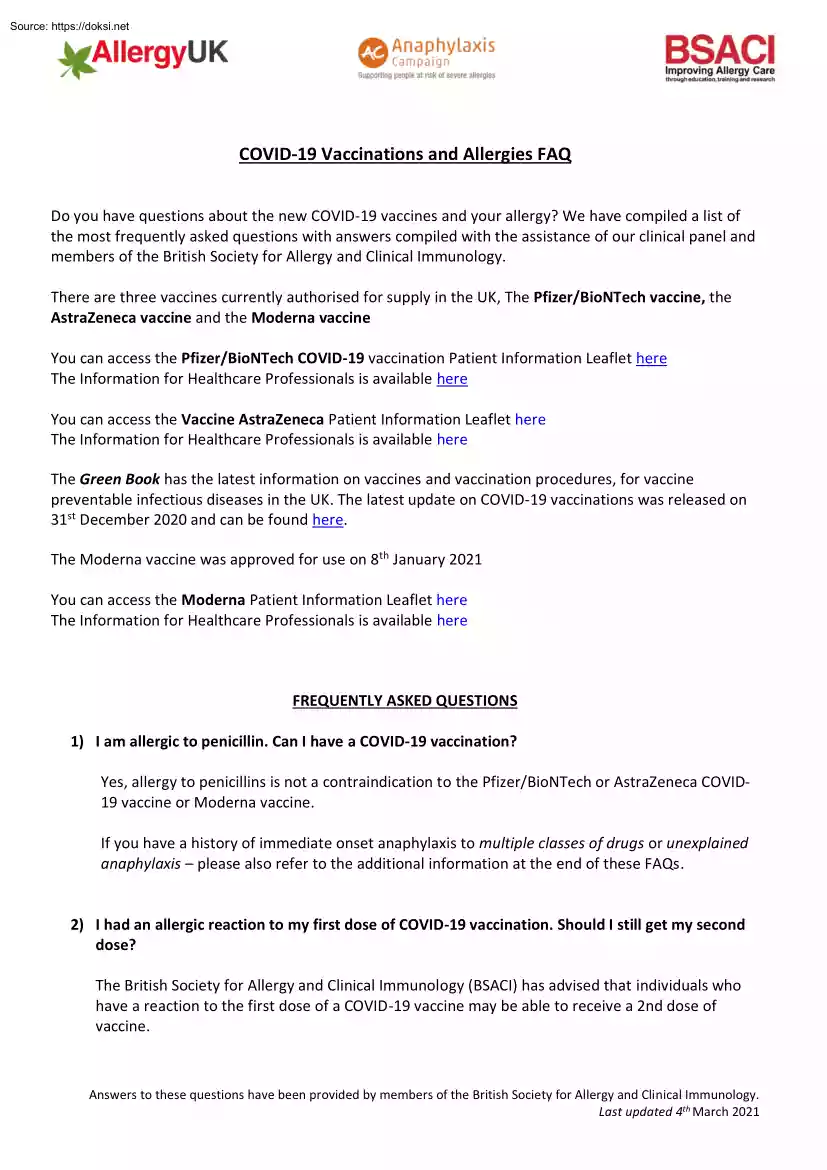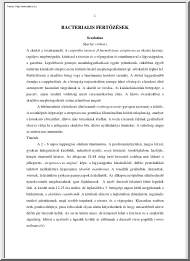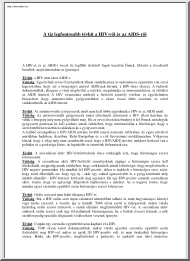Datasheet
Year, pagecount:2021, 7 page(s)
Language:English
Downloads:3
Uploaded:May 24, 2021
Size:1 MB
Institution:
-
Comments:
Attachment:-
Download in PDF:Please log in!
Comments
No comments yet. You can be the first!Most popular documents in this category
Content extract
COVID-19 Vaccinations and Allergies FAQ Do you have questions about the new COVID-19 vaccines and your allergy? We have compiled a list of the most frequently asked questions with answers compiled with the assistance of our clinical panel and members of the British Society for Allergy and Clinical Immunology. There are three vaccines currently authorised for supply in the UK, The Pfizer/BioNTech vaccine, the AstraZeneca vaccine and the Moderna vaccine You can access the Pfizer/BioNTech COVID-19 vaccination Patient Information Leaflet here The Information for Healthcare Professionals is available here You can access the Vaccine AstraZeneca Patient Information Leaflet here The Information for Healthcare Professionals is available here The Green Book has the latest information on vaccines and vaccination procedures, for vaccine preventable infectious diseases in the UK. The latest update on COVID-19 vaccinations was released on 31st December 2020 and can be found here. The Moderna vaccine
was approved for use on 8th January 2021 You can access the Moderna Patient Information Leaflet here The Information for Healthcare Professionals is available here FREQUENTLY ASKED QUESTIONS 1) I am allergic to penicillin. Can I have a COVID-19 vaccination? Yes, allergy to penicillins is not a contraindication to the Pfizer/BioNTech or AstraZeneca COVID19 vaccine or Moderna vaccine. If you have a history of immediate onset anaphylaxis to multiple classes of drugs or unexplained anaphylaxis – please also refer to the additional information at the end of these FAQs. 2) I had an allergic reaction to my first dose of COVID-19 vaccination. Should I still get my second dose? The British Society for Allergy and Clinical Immunology (BSACI) has advised that individuals who have a reaction to the first dose of a COVID-19 vaccine may be able to receive a 2nd dose of vaccine. Answers to these questions have been provided by members of the British Society for Allergy and Clinical Immunology.
Last updated 4th March 2021 In the Green Book there is a flow chart for managing patients who have had an allergic reaction to the first dose of COVID-19 vaccine. 3) I have a latex allergy. Will the vaccine syringe contain latex? No, according to the manufacturer, neither the Pfizer/BioNTech COVID-19 or AstraZeneca or Moderna vaccine vial contains latex. The Pfizer/BioNtech vaccination is supplied in vials that have a stopper made from Bromobutyl. This is a synthetic form of rubber which does not contain any dry natural rubber (latex). Pfizer have confirmed that latex is not used at all in the raw materials used to produce the vaccine. Answers to these questions have been provided by members of the British Society for Allergy and Clinical Immunology. Last updated 4th March 2021 The AstraZeneca vaccination is supplied in vials that have a stopper made from Halobutyl which is also a synthetic form of rubber which does not contain any dry natural rubber (latex) The Moderna
vaccination is supplied in vials that do not contain any dry natural rubber (latex) It is important to let your Healthcare Provider know about your latex allergy so they can ensure they do not use any latex containing products whilst treating you. 4) I have a severe food allergy. Does this mean I am unable to have a COVID-19 vaccine? The latest information in the Green Book states:Following close national surveillance, the MHRA is no longer advising that individuals with a history of anaphylaxis to any vaccine, medicine or food do not get the vaccine. Anyone with a previous history of allergic reactions to the ingredients of the vaccine should not receive it, but those with any other allergies (such as a food allergy) can now have the vaccine. If you have a history of immediate onset anaphylaxis to multiple classes of drugs or unexplained anaphylaxis – please also refer to the additional information at the end of these FAQs. 5) I have an egg allergy. Do the COVID-19 vaccines contain
egg and are they safe to have? Neither the Pfizer/BioNTech or the AstraZeneca or Moderna vaccine contain any egg proteins and none of the vaccines are contraindicated in egg allergy. 6) I am allergic to house dust mites. Can I have a COVID-19 vaccine? Yes, allergy to aeroallergens such as house dust mites, pollen or animal allergens is not a contraindication to the Pfizer/BioNTech or the AstraZeneca COVID-19 or the Moderna vaccine. 7) What percentage of the population usually have a severe reaction to a vaccine? Many common side effects of vaccination such as localised pain and swelling at the site of injection or flu-like symptoms can be mistaken for allergy. They are not a reason to avoid the Pfizer/BioNTech or AstraZeneca COVID-19 vaccine or Moderna vaccine. Severe allergic reactions to COVID-19 vaccines are very rare. The MHRA constantly monitors reports of adverse reactions to vaccines through the yellow card scheme and publishes a regularly updated report on COVID-19 vaccine
reactions which you can find here Answers to these questions have been provided by members of the British Society for Allergy and Clinical Immunology. Last updated 4th March 2021 8) I’ve read that the ingredients polyethylene glycol (PEG) and Polysorbate 80 are in some vaccines. How rare is it to have an allergy to them and are they contained in all COVID-19 vaccines? The Green Book states:‘The Pfizer BioNTech and Moderna mRNA vaccines contain polyethylene glycol (PEG). PEGs (also known as macrogols) are a group of known allergens commonly found in medicines, many household products and cosmetics. Medicines containing PEG include some tablets, laxatives, depot steroid injections, and some bowel preparations used for colonoscopy. Known allergy to PEG is rare but would contraindicate receipt of this vaccine. (Sellaturay P et al, 2020) It is unclear whether PEG is the only cause of allergic reactions in patients with systemic allergic symptoms after the first dose of
Pfizer-BioNTech vaccine. The rate of anaphylaxis reported to date to the AstraZeneca vaccine is in line with the expected rate of anaphylaxis to non-COVID vaccines. The AstraZeneca vaccine does not contain PEG but does contain a related compound called polysorbate 80. Some people with PEG allergy may also be allergic to polysorbate 80. However, polysorbate 80 is widely used in medicines and foods, and is present in many medicines including monoclonal antibody preparations. Some injected influenza vaccines (including the main vaccine used in over 65 year olds) contain polysorbate 80. Individuals who have tolerated injections that contain polysorbate 80 (such as certain influenza vaccines) are likely to tolerate the AstraZeneca vaccine. ‘ 9) Can patients who do not carry adrenaline and have had previous mild to moderate reactions to foods or drugs still have a COVID-19 vaccine? Yes, there is no need to avoid the Pfizer/BioNTech COVID-19 or AstraZeneca or Moderna vaccines if you have
had a mild to moderate reaction to a food or an identified drug. If you have a history of immediate onset anaphylaxis to multiple classes of drugs or unexplained anaphylaxis – please also refer to the additional information at the end of these FAQs. 10) Is there an increased risk for patients with asthma in having a COVID-19 vaccine? No, there is not. However good asthma control in the weeks before vaccination is important (just like with all other vaccines). 11) Can individuals with a history of venom anaphylaxis have a COVID 19 vaccine? Yes, allergy to venom is not a contraindication to the Pfizer/BioNTech or the AstraZeneca or Moderna COVID-19 vaccines. Answers to these questions have been provided by members of the British Society for Allergy and Clinical Immunology. Last updated 4th March 2021 12) I have previously experienced immediate onset anaphylaxis to a food/identified medicine. Can I have a COVID-19 vaccination? The latest information in the Green Book states
vaccination can proceed as normal in individuals who have had:• • • • • previous allergic reaction (including anaphylaxis) to a food, insect sting and most medicines (where the trigger has been identified) family history of allergies previous non-systemic reaction to a vaccine hypersensitivity to nonsteroidal antiinflammatory drugs e.g aspirin, ibuprofen mastocytosis If you have a history of immediate onset anaphylaxis to multiple classes of drugs or unexplained anaphylaxis – please also refer to the additional information at the end of these FAQs. 13) I have previously experienced anaphylaxis to a vaccine. Can I have a COVID-19 vaccination? The latest information in the Green Book recommends special precautions be taken in individuals who have a history of anaphylaxis to a vaccine, injected antibody preparation or a medicine likely to contain PEG (e.g depot steroid injection, laxative) However if your anaphylaxis occurred with a vaccine that did not contain Polysorbate
80 then there is no contraindication to receiving Covid vaccination. • • • discuss with allergy specialist and consider possibility of PEG-allergy consider observation for 30 minutes if vaccination proceeds (see precautions) some patients may benefit from pretreatment with antihistamine, however this may mask initial symptoms of a reaction • Patients with undiagnosed PEG allergy often have a history of immediate onset-unexplained anaphylaxis or anaphylaxis to multiple classes of drugs or an unexplained anaphylaxis. Such individuals should not be vaccinated with the Pfizer BioNTech vaccine, except on the expert advice of an allergy specialist. The AstraZeneca vaccine can be used as an alternative (unless otherwise contraindicated), particularly if they previously tolerated an injected influenza vaccine. The vaccine should be administered in a setting with full resuscitation facilities (e.g a hospital), and a 30 minute observation period is recommended. Answers to these
questions have been provided by members of the British Society for Allergy and Clinical Immunology. Last updated 4th March 2021 14) I have Alpha-gal allergy and react to medicines containing gelatine. Is there any gelatine in the COVID-19 Vaccinations? No. The ingredients for each vaccine are listed in the patient information sheet which you should be given to read prior to having your vaccination. There is no gelatine in the Pfizer/BioNTech or AstraZeneca or Moderna vaccines. 15) I am allergic to all fish and have read that squalene, which comes from shark liver oil is used in some vaccines. Do the COVID-19 vaccines contain squalene and does it pose a risk to me? You are correct that squalene is used in some vaccines. It is highly purified fat that does not contain the proteins which cause the allergic reaction. It is not considered to pose any risk for patients with fish allergy. Neither the Pfizer/BioNTech or AstraZeneca or Moderna vaccination contain any squalene and there is
no reason to suspect that they would cause any problems for someone allergic to fish. 16) I have a food allergy and carry adrenaline auto injectors. Should I bring them to my immunisation appointment just in case? All people who carry adrenaline should take their two auto injectors with them everywhere they go. Anaphylaxis to a vaccine is extremely rare Public Health guidelines require anyone responsible for giving a vaccine to receive training on the management of anaphylaxis. A protocol for the management of anaphylaxis and an anaphylaxis pack which includes adrenaline must always be available whenever vaccines are given. 17) With other new COVID-19 vaccines in development, is there any reason to wait for a different vaccine? Will the other vaccines be suitable for people with allergies? There are many COVID-19 vaccines in development with several in the final stages of trials and likely to become available over the coming months. Each vaccine is different, and they use a variety of
different technologies. Until a vaccine is approved, we will not know exactly what the ingredients are, so it is impossible to comment on their safety or otherwise for people with particular allergies. Before having any vaccination, it is important that you are given the patient information leaflet to read. This contains vital information about who should receive the vaccine along with a complete list of ingredients. Answers to these questions have been provided by members of the British Society for Allergy and Clinical Immunology. Last updated 4th March 2021 Additional Information In the Green Book the British Society for Allergy and Clinical Immunology (BSACI) has advised that special precautions for individuals who have a: • • • history of immediate anaphylaxis to multiple, different drug classes, with the trigger unidentified (this may indicate PEG allergy) history of anaphylaxis to a vaccine, injected antibody preparation or a medicine likely to contain PEG (e.g depot
steroid injection, laxative) history of idiopathic anaphylaxis Patients with undiagnosed PEG allergy often have a history of immediate onset-unexplained anaphylaxis or anaphylaxis to multiple classes of drugs or an unexplained anaphylaxis. Such individuals should not be vaccinated with the Pfizer BioNTech vaccine, except on the expert advice of an allergy specialist. The AstraZeneca vaccine can be used as an alternative (unless otherwise contraindicated), particularly if they previously tolerated an injected influenza vaccine. The vaccine should be administered in a setting with full resuscitation facilities (e.g a hospital), and a 30 minute observation period is recommended References Green Book Chapter 14a. 2021 [online] Available at: <https://assets.publishingservicegovuk/government/uploads/system/uploads/attachment data/file/9 48757/Greenbook chapter 14a v4.pdf> Answers to these questions have been provided by members of the British Society for Allergy and Clinical
Immunology. Last updated 4th March 2021
was approved for use on 8th January 2021 You can access the Moderna Patient Information Leaflet here The Information for Healthcare Professionals is available here FREQUENTLY ASKED QUESTIONS 1) I am allergic to penicillin. Can I have a COVID-19 vaccination? Yes, allergy to penicillins is not a contraindication to the Pfizer/BioNTech or AstraZeneca COVID19 vaccine or Moderna vaccine. If you have a history of immediate onset anaphylaxis to multiple classes of drugs or unexplained anaphylaxis – please also refer to the additional information at the end of these FAQs. 2) I had an allergic reaction to my first dose of COVID-19 vaccination. Should I still get my second dose? The British Society for Allergy and Clinical Immunology (BSACI) has advised that individuals who have a reaction to the first dose of a COVID-19 vaccine may be able to receive a 2nd dose of vaccine. Answers to these questions have been provided by members of the British Society for Allergy and Clinical Immunology.
Last updated 4th March 2021 In the Green Book there is a flow chart for managing patients who have had an allergic reaction to the first dose of COVID-19 vaccine. 3) I have a latex allergy. Will the vaccine syringe contain latex? No, according to the manufacturer, neither the Pfizer/BioNTech COVID-19 or AstraZeneca or Moderna vaccine vial contains latex. The Pfizer/BioNtech vaccination is supplied in vials that have a stopper made from Bromobutyl. This is a synthetic form of rubber which does not contain any dry natural rubber (latex). Pfizer have confirmed that latex is not used at all in the raw materials used to produce the vaccine. Answers to these questions have been provided by members of the British Society for Allergy and Clinical Immunology. Last updated 4th March 2021 The AstraZeneca vaccination is supplied in vials that have a stopper made from Halobutyl which is also a synthetic form of rubber which does not contain any dry natural rubber (latex) The Moderna
vaccination is supplied in vials that do not contain any dry natural rubber (latex) It is important to let your Healthcare Provider know about your latex allergy so they can ensure they do not use any latex containing products whilst treating you. 4) I have a severe food allergy. Does this mean I am unable to have a COVID-19 vaccine? The latest information in the Green Book states:Following close national surveillance, the MHRA is no longer advising that individuals with a history of anaphylaxis to any vaccine, medicine or food do not get the vaccine. Anyone with a previous history of allergic reactions to the ingredients of the vaccine should not receive it, but those with any other allergies (such as a food allergy) can now have the vaccine. If you have a history of immediate onset anaphylaxis to multiple classes of drugs or unexplained anaphylaxis – please also refer to the additional information at the end of these FAQs. 5) I have an egg allergy. Do the COVID-19 vaccines contain
egg and are they safe to have? Neither the Pfizer/BioNTech or the AstraZeneca or Moderna vaccine contain any egg proteins and none of the vaccines are contraindicated in egg allergy. 6) I am allergic to house dust mites. Can I have a COVID-19 vaccine? Yes, allergy to aeroallergens such as house dust mites, pollen or animal allergens is not a contraindication to the Pfizer/BioNTech or the AstraZeneca COVID-19 or the Moderna vaccine. 7) What percentage of the population usually have a severe reaction to a vaccine? Many common side effects of vaccination such as localised pain and swelling at the site of injection or flu-like symptoms can be mistaken for allergy. They are not a reason to avoid the Pfizer/BioNTech or AstraZeneca COVID-19 vaccine or Moderna vaccine. Severe allergic reactions to COVID-19 vaccines are very rare. The MHRA constantly monitors reports of adverse reactions to vaccines through the yellow card scheme and publishes a regularly updated report on COVID-19 vaccine
reactions which you can find here Answers to these questions have been provided by members of the British Society for Allergy and Clinical Immunology. Last updated 4th March 2021 8) I’ve read that the ingredients polyethylene glycol (PEG) and Polysorbate 80 are in some vaccines. How rare is it to have an allergy to them and are they contained in all COVID-19 vaccines? The Green Book states:‘The Pfizer BioNTech and Moderna mRNA vaccines contain polyethylene glycol (PEG). PEGs (also known as macrogols) are a group of known allergens commonly found in medicines, many household products and cosmetics. Medicines containing PEG include some tablets, laxatives, depot steroid injections, and some bowel preparations used for colonoscopy. Known allergy to PEG is rare but would contraindicate receipt of this vaccine. (Sellaturay P et al, 2020) It is unclear whether PEG is the only cause of allergic reactions in patients with systemic allergic symptoms after the first dose of
Pfizer-BioNTech vaccine. The rate of anaphylaxis reported to date to the AstraZeneca vaccine is in line with the expected rate of anaphylaxis to non-COVID vaccines. The AstraZeneca vaccine does not contain PEG but does contain a related compound called polysorbate 80. Some people with PEG allergy may also be allergic to polysorbate 80. However, polysorbate 80 is widely used in medicines and foods, and is present in many medicines including monoclonal antibody preparations. Some injected influenza vaccines (including the main vaccine used in over 65 year olds) contain polysorbate 80. Individuals who have tolerated injections that contain polysorbate 80 (such as certain influenza vaccines) are likely to tolerate the AstraZeneca vaccine. ‘ 9) Can patients who do not carry adrenaline and have had previous mild to moderate reactions to foods or drugs still have a COVID-19 vaccine? Yes, there is no need to avoid the Pfizer/BioNTech COVID-19 or AstraZeneca or Moderna vaccines if you have
had a mild to moderate reaction to a food or an identified drug. If you have a history of immediate onset anaphylaxis to multiple classes of drugs or unexplained anaphylaxis – please also refer to the additional information at the end of these FAQs. 10) Is there an increased risk for patients with asthma in having a COVID-19 vaccine? No, there is not. However good asthma control in the weeks before vaccination is important (just like with all other vaccines). 11) Can individuals with a history of venom anaphylaxis have a COVID 19 vaccine? Yes, allergy to venom is not a contraindication to the Pfizer/BioNTech or the AstraZeneca or Moderna COVID-19 vaccines. Answers to these questions have been provided by members of the British Society for Allergy and Clinical Immunology. Last updated 4th March 2021 12) I have previously experienced immediate onset anaphylaxis to a food/identified medicine. Can I have a COVID-19 vaccination? The latest information in the Green Book states
vaccination can proceed as normal in individuals who have had:• • • • • previous allergic reaction (including anaphylaxis) to a food, insect sting and most medicines (where the trigger has been identified) family history of allergies previous non-systemic reaction to a vaccine hypersensitivity to nonsteroidal antiinflammatory drugs e.g aspirin, ibuprofen mastocytosis If you have a history of immediate onset anaphylaxis to multiple classes of drugs or unexplained anaphylaxis – please also refer to the additional information at the end of these FAQs. 13) I have previously experienced anaphylaxis to a vaccine. Can I have a COVID-19 vaccination? The latest information in the Green Book recommends special precautions be taken in individuals who have a history of anaphylaxis to a vaccine, injected antibody preparation or a medicine likely to contain PEG (e.g depot steroid injection, laxative) However if your anaphylaxis occurred with a vaccine that did not contain Polysorbate
80 then there is no contraindication to receiving Covid vaccination. • • • discuss with allergy specialist and consider possibility of PEG-allergy consider observation for 30 minutes if vaccination proceeds (see precautions) some patients may benefit from pretreatment with antihistamine, however this may mask initial symptoms of a reaction • Patients with undiagnosed PEG allergy often have a history of immediate onset-unexplained anaphylaxis or anaphylaxis to multiple classes of drugs or an unexplained anaphylaxis. Such individuals should not be vaccinated with the Pfizer BioNTech vaccine, except on the expert advice of an allergy specialist. The AstraZeneca vaccine can be used as an alternative (unless otherwise contraindicated), particularly if they previously tolerated an injected influenza vaccine. The vaccine should be administered in a setting with full resuscitation facilities (e.g a hospital), and a 30 minute observation period is recommended. Answers to these
questions have been provided by members of the British Society for Allergy and Clinical Immunology. Last updated 4th March 2021 14) I have Alpha-gal allergy and react to medicines containing gelatine. Is there any gelatine in the COVID-19 Vaccinations? No. The ingredients for each vaccine are listed in the patient information sheet which you should be given to read prior to having your vaccination. There is no gelatine in the Pfizer/BioNTech or AstraZeneca or Moderna vaccines. 15) I am allergic to all fish and have read that squalene, which comes from shark liver oil is used in some vaccines. Do the COVID-19 vaccines contain squalene and does it pose a risk to me? You are correct that squalene is used in some vaccines. It is highly purified fat that does not contain the proteins which cause the allergic reaction. It is not considered to pose any risk for patients with fish allergy. Neither the Pfizer/BioNTech or AstraZeneca or Moderna vaccination contain any squalene and there is
no reason to suspect that they would cause any problems for someone allergic to fish. 16) I have a food allergy and carry adrenaline auto injectors. Should I bring them to my immunisation appointment just in case? All people who carry adrenaline should take their two auto injectors with them everywhere they go. Anaphylaxis to a vaccine is extremely rare Public Health guidelines require anyone responsible for giving a vaccine to receive training on the management of anaphylaxis. A protocol for the management of anaphylaxis and an anaphylaxis pack which includes adrenaline must always be available whenever vaccines are given. 17) With other new COVID-19 vaccines in development, is there any reason to wait for a different vaccine? Will the other vaccines be suitable for people with allergies? There are many COVID-19 vaccines in development with several in the final stages of trials and likely to become available over the coming months. Each vaccine is different, and they use a variety of
different technologies. Until a vaccine is approved, we will not know exactly what the ingredients are, so it is impossible to comment on their safety or otherwise for people with particular allergies. Before having any vaccination, it is important that you are given the patient information leaflet to read. This contains vital information about who should receive the vaccine along with a complete list of ingredients. Answers to these questions have been provided by members of the British Society for Allergy and Clinical Immunology. Last updated 4th March 2021 Additional Information In the Green Book the British Society for Allergy and Clinical Immunology (BSACI) has advised that special precautions for individuals who have a: • • • history of immediate anaphylaxis to multiple, different drug classes, with the trigger unidentified (this may indicate PEG allergy) history of anaphylaxis to a vaccine, injected antibody preparation or a medicine likely to contain PEG (e.g depot
steroid injection, laxative) history of idiopathic anaphylaxis Patients with undiagnosed PEG allergy often have a history of immediate onset-unexplained anaphylaxis or anaphylaxis to multiple classes of drugs or an unexplained anaphylaxis. Such individuals should not be vaccinated with the Pfizer BioNTech vaccine, except on the expert advice of an allergy specialist. The AstraZeneca vaccine can be used as an alternative (unless otherwise contraindicated), particularly if they previously tolerated an injected influenza vaccine. The vaccine should be administered in a setting with full resuscitation facilities (e.g a hospital), and a 30 minute observation period is recommended References Green Book Chapter 14a. 2021 [online] Available at: <https://assets.publishingservicegovuk/government/uploads/system/uploads/attachment data/file/9 48757/Greenbook chapter 14a v4.pdf> Answers to these questions have been provided by members of the British Society for Allergy and Clinical
Immunology. Last updated 4th March 2021





